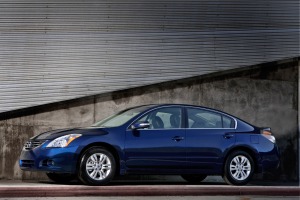How To Get the Best Price on an Extended Car Warranty
At the Dealership, Everything's Negotiable

It's Murphy's Law: Your car will probably need a major repair as soon as the factory warranty runs out. If you plan to keep your car past that point, buying an extended warranty (also called extended service contract) could be a worthwhile investment. Like nearly anything a car dealer sells, though, it's a high-profit product whose price can be aggressively negotiated.
Advantages of a Factory Warranty
Extended vehicle warranties fall into two classes: manufacturer (a.k.a. factory) warranties and third-party warranties. Even though manufacturer warranties are generally more expensive, Edmunds recommends them over third-party warranties for several reasons:
- Factory-trained technicians using manufacturer-authorized parts repair your car.
- Repairs aren't delayed while authorization for repairs is obtained.
- You don't have to lay out the money up front or file claims for reimbursement.
- If you sell the vehicle, factory extended warranties are often transferrable to another owner.
To learn specifics about what the factory extended warranty covers, go to the manufacturer's extended warranty page, linked here: Acura, Audi, BMW, Buick/Cadillac/Chevrolet/GMC/Hummer/Pontiac/Saturn/Saab, Dodge/Chrysler/Jeep, Ford/Lincoln/Mercury, Honda, Isuzu, Jaguar, Land Rover, Lexus, Mazda, Mercedes-Benz, Mini, Nissan, Subaru, Toyota, Volkswagen, Volvo (For brands not listed above, see your dealer for details. Dealers may use third-party programs and offerings may vary.)
Dealers are able to sell both factory and third-party warranties, but will strongly promote whichever brings them the most profit, so don't necessarily believe it if the dealer says he "doesn't offer" the manufacturer's warranty. Most plans are purchased through your dealership, but some brands also sell extended warranties over the phone.
Timing Your Purchase
Buying an extended warranty when you purchase your vehicle lets you fold the cost of the warranty into the vehicle's financing. This can mean a small bump in your monthly car payment, instead of laying out a lot of cash in one lump sum. But you don't have to buy an extended warranty when your car is new. You can add this financial insurance to your ride any time before the standard factory warranty runs out, without paying a penalty. You might also be able to add the coverage even after the standard factory coverage expires, though this can be far more expensive.
Similar to shopping for insurance, you can choose from extended warranty plans with different deductibles and levels of coverage. Generally speaking, most extended warranties offer three coverage levels. The first level pertains to the powertrain; the second adds coverage for more components; and the highest level provides comprehensive (bumper-to-bumper) coverage, which includes costly-to-repair electrical systems.
If you're going to buy an extended warranty, you should consider what kind of risk you are willing to shoulder. If you purchase the highest level of coverage, you won't be unpleasantly surprised to hear that a part needing replacement or repair isn't covered.
Advice From the Dealer
We called a finance and insurance (F&I) officer at a local dealership, who mentioned that they often pitch only a particular coverage tier. "I only quote the highest level of extended warranty," says Glenn Bane-DeVille, finance director at Santa Monica Ford, in Santa Monica, California. "I don't want people to come in thinking a part's covered but then if it's not, they'll start pointing the finger at me!"
Bane-DeVille says some 50-60 percent of the cars sold through Santa Monica Ford have extended warranties. She's also recently seen a huge increase in the number of people who come in for vehicle service and decide to purchase an extended warranty. In an age when costs everywhere are rising, she says, extended warranties provide peace of mind that "no matter how high labor goes up, you don't have to pay."
How To Negotiate an Extended Warranty
Begin by getting quotes from at least two sources. Call local dealerships, speak with the F&I manager and ask what they charge for the plan you choose. Don't say you are also buying a car — only an extended warranty. Different dealers may offer different quotes, but once you have a few answers, you'll know roughly what the going rate is.
Typically, salespeople are instructed to try to sell extended vehicle warranties at double the dealer's cost. If you are quoted an average price of $1,000 for the top-tier extended warranty, chances are the dealer only paid $500 for that product.
Dealers should be allowed some profit on an extended warranty, but when aiming for a reasonable price, start low and negotiate upward. In the case of a $1,000 quote, offer the dealer $650. Try to end up at least splitting the difference between the dealer's cost and his asking price (in this case $750 — 25 percent below the original quote), and remember there's no risk in starting with a lowball offer.
Here's another tip: When you're buying an extended warranty with a new car, dealers generally talk in terms of monthly payments, not the total cost for the warranty. In order to really know what you're paying, ask for an itemized cost of everything on the vehicle, including the total cost of the extended warranty.
More Info
To find out more about the questions you should ask before purchasing an extended warranty, read our article, "Understanding Extended Warranties." In our Forums, we have discussions on Extended Warranties, Warranty Claims Administration and Warranties Backed by a Risk Retention Group. To learn more about how finance and insurance officers pitch extended warranties, take a look at "Confessions of an Auto Finance Manager."








